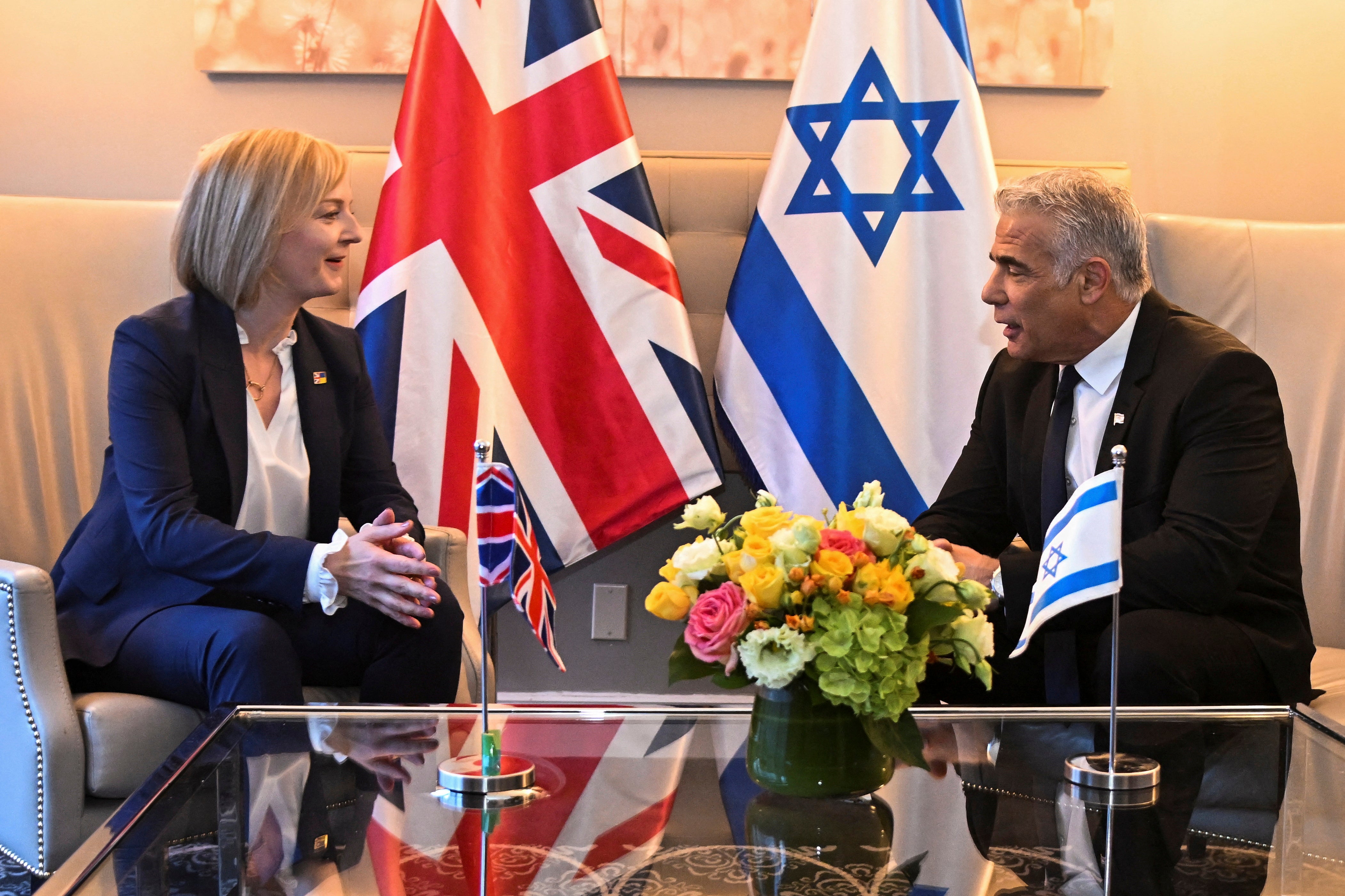If Liz Truss does this in Israel, it will have far-reaching consequences
Such a decision would represent a significant departure from long-held British policy and a direct contravention of international law


At a recent meeting with Israeli prime minister Yair Lapid, Liz Truss confirmed that her government is considering moving the UK embassy from Tel Aviv to Jerusalem. Such a decision would represent a significant departure from long-held British policy and a direct contravention of international law. As an effective recognition of Israeli sovereignty over Jerusalem, it would be a decisive step away from a just future and have deep repercussions extending beyond Palestine.
Since the Nakba and the creation of the state of Israel in 1948, successive Israeli governments have claimed, in the words of Israel’s longest-serving prime minister Benjamin Netanyahu, that: “Jerusalem was only ever the capital of the Jewish people, not of any other people.” This is a claim of exclusivity which negates the existence of an entire Palestinian society before 1948, for whom Jerusalem was, and remains, their cultural, economic and religious centre.
My own grandmother grew up in the Qatamon and then Baqa’a neighbourhoods of Jerusalem; an area from which her family, along with many other Palestinians, were expelled in 1948. She resettled in the neighbourhood of Sheikh Jarrah, in what is often known today as East Jerusalem. When Israel occupied that eastern part of the city in June 1967, my grandmother and grandfather were in Jordan and prevented from returning home, becoming forcibly displaced by Israel for a second time. My grandmother died in Amman in September 2020.
Since 1967, Israeli governments have developed increasingly sophisticated forms of erasure, including relegating native Palestinians to mere “residents” in their own city (as opposed to citizens) and making them jump through complex sets of legal hoops to remain in their homes.
Examples include limitations on freedom to move abroad for work or study, as being out of Jerusalem for a period of time absurdly makes Palestinians eligible to lose their “residency”. It includes severe restrictions on the ability to build property or extend existing homes. It even includes restrictions on living with a spouse who happens to be Palestinian from the West Bank or Gaza. No such restrictions apply to Israelis who live in the city.
This potential step by the UK government would thus serve as a seal of approval to Israeli policies past and present which erase the Palestinian presence in (and identity of) the city. In doing so, Truss is leading the UK down a dangerous path of isolation from international consensus, which has repeatedly condemned Israel’s occupation and unilateral annexation of East Jerusalem and declared any measures taken to alter the character and status of the city to be “null and void”. That Truss would reverse decades of British policy and break with the vast majority of the international community to follow the lead of Donald Trump should sound alarm bells.
On the same day that Truss met with Lapid, South Africa’s minister for international relations spoke to the UN General Assembly about the now extensive body of evidence concluding that Israel is perpetrating apartheid within the territories under its control, and called for Israel to be “held accountable for its destructive actions”.
Her words should serve as an uncomfortable reminder of a British government which took far too long to denounce apartheid once before – and invite a lesson about coming to terms with Britain’s colonial legacy, including in Palestine. Will Britain, once again, be on the wrong side of history?
To keep up to speed with all the latest opinions and comment sign up to our free weekly Voices Dispatches newsletter by clicking here
Truss and her government are threatening to adopt a reckless and short-sighted approach – aligning the UK ever more closely with Israel and other repressive regimes in the region and strengthening ties through lucrative industries such as arms trade and surveillance technologies.
UK support for the Abraham Accords – which omit Palestinians from the picture while establishing formal ties between Bahrain, the UAE and Israel –provides yet another example of an approach which serves to support Israel in maintaining its regime of control over (and systematic oppression of) Palestinians, at a time when accountability is more needed than ever.
Truss’s policy towards Palestine – rejecting the values of justice, democracy, and human dignity – is painfully consistent with what we are also witnessing in the UK. The promotion of authoritarian and repressive legislation around the right to protest, the right to boycott, immigration – and other issues – speak of a government that has lost all sense of moral compass. Relocating the embassy should be a matter of deep concern not just to Palestinians, but to all British citizens.
Dr Sara Husseini is director of the British Palestinian Committee, an independent voice on British policy towards Palestine
Join our commenting forum
Join thought-provoking conversations, follow other Independent readers and see their replies
Comments
Bookmark popover
Removed from bookmarks